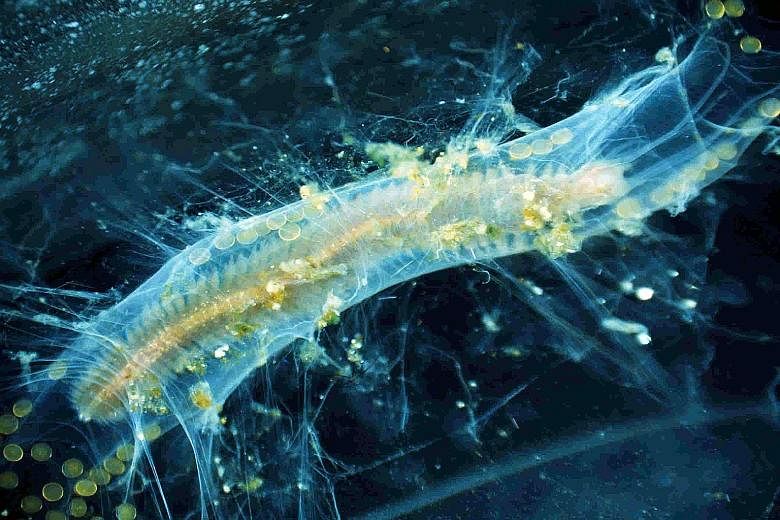Marine organisms living in acidified waters, such as the polychaete worm pictured here, exhibit a greater tendency to nurture their offspring, compared to organisms living in regular conditions, a study has found. Researchers from Plymouth University in Britain have discovered that the polychaete worms, located around volcanic vents in the Mediterranean,
grow and develop their eggs within the protection of the family unit. Here, the female is pictured laying and moving 74 eggs into inner brood tubes. This is in contrast to closely related species that release the eggs into the water column to fend for themselves. The scientists say the findings could provide important insights into how organisms adjust to increasing levels of carbon dioxide in the sea - and the implications it might have for future biodiversity.
Beautiful Science

Join ST's Telegram channel and get the latest breaking news delivered to you.
A version of this article appeared in the print edition of The Straits Times on August 28, 2015, with the headline Beautiful Science. Subscribe
